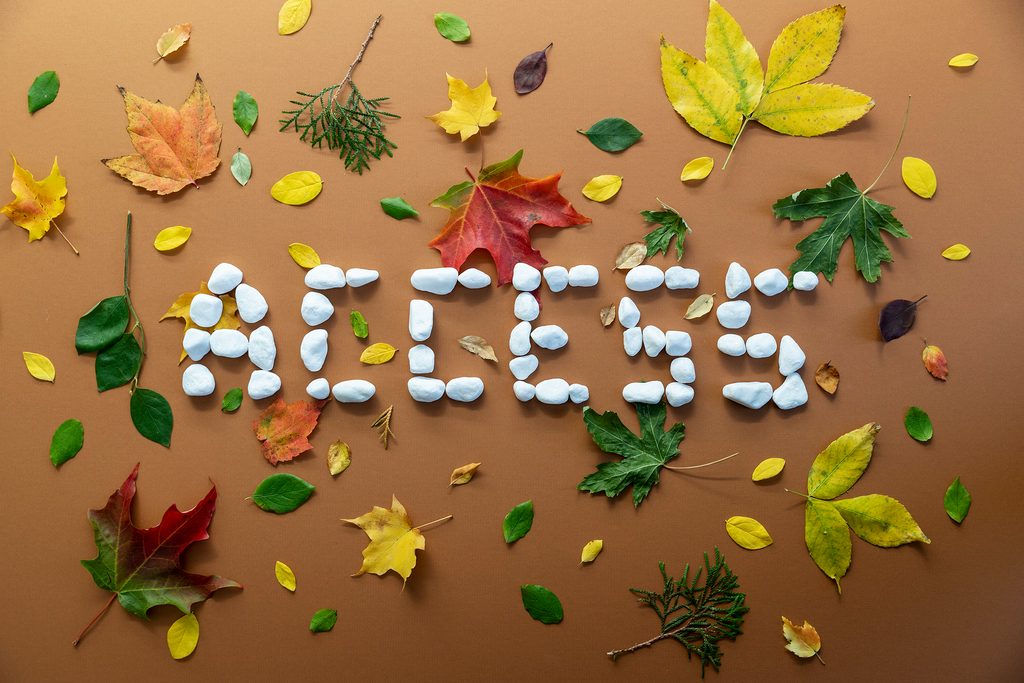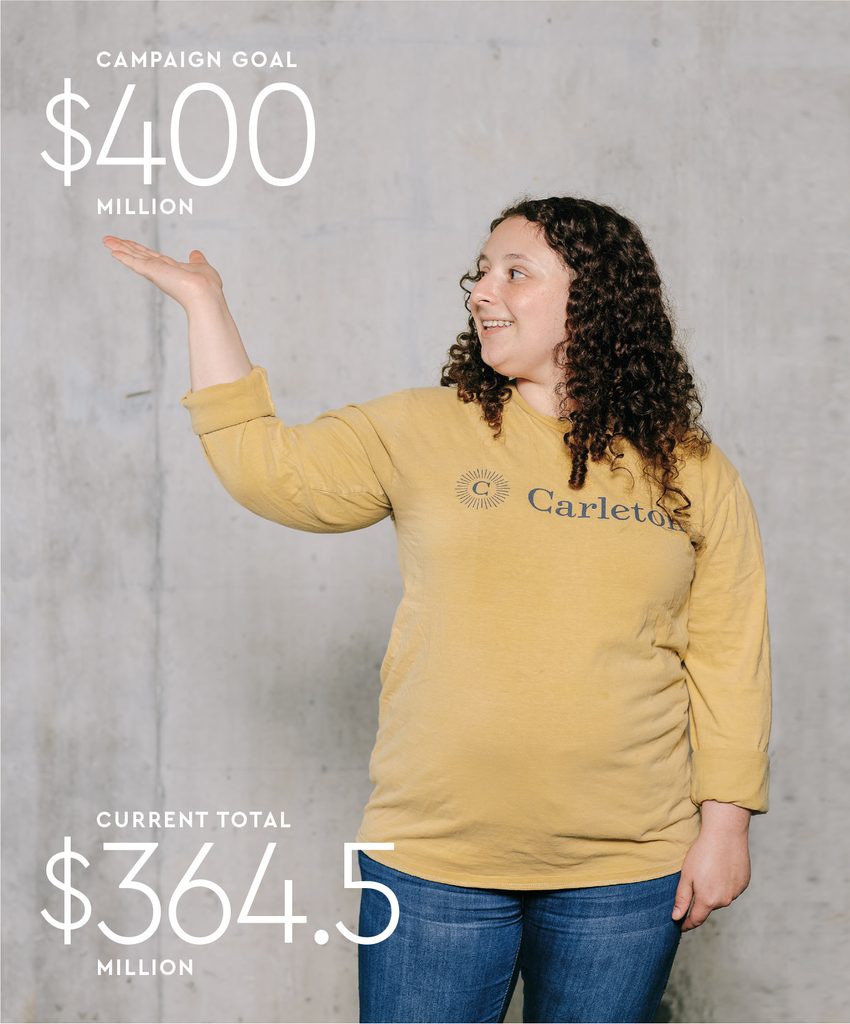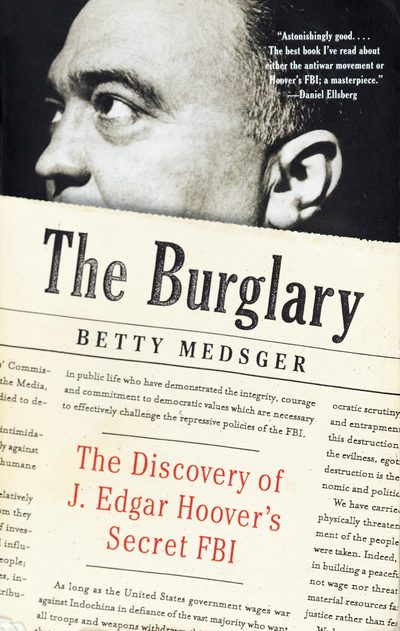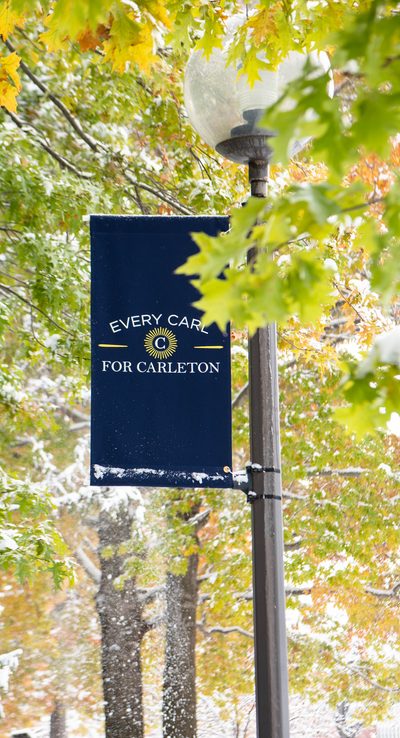
Affordable, accessible, top-quality education is the backbone of economic opportunity and, more generally, a healthy democracy. Institutions like Carleton that embrace the educational importance of a student body that is diverse in every dimension have a dual obligation: first, to put such learning and growth within reach of the broadest swath of the populace, and second, to ensure that these benefits are actually realized by all our students.”
—PRESIDENT STEVEN G. POSKANZER

Campaign Update
The current (November 2019) campaign total is $364.5 million toward our $400 million goal.
Early Success
Demand for internships is high—with good reason. According to the Career Center, employers now report that a majority of their new college hires have previous internship experience, and 64 percent of those workers made an average of 8.9 percent more than their inexperienced counterparts.
Carleton anticipated this new reality five years ago when it devoted even further attention to supporting students who can’t afford to accept a voluntary position (most internships are unpaid) or absorb any extra costs associated with the assignment, like travel and housing.
By the summer of 2019, of the 507 students who completed an internship, 115 received funding from the Career Center.
“On the one hand, it’s a success story because donors have stepped up to support internships in unprecedented ways over the past five years, so now more graduating students have interned than ever before,” says Rachel Leatham, associate director of the Career Center. “However, each year a tremendous push needs to be made to replenish internship funds. Endowing more funds would alleviate that. Our funding needs to be predictable so we can focus on removing financial barriers so that all Carleton students who want to complete an internship experience can afford to do so.”

Pay Back
John Raines ’55 was a professor of social ethics, beloved by students, in Temple University’s religion department for almost 50 years. The committed civil rights advocate’s most memorable feat would remain secret until 2014, when he admitted to his involvement in one of the most prominent information leaks in American history.
On March 8, 1971, Raines and other political activists, including his wife, Bonnie Raines, broke into an FBI field office in Media, Pennsylvania. The ad hoc group stole documents that the Washington Post would use to expose abuses of power inside the office of J. Edgar Hoover, first director of the FBI. Raines, who drove the getaway car, was not officially connected to the incident until decades later, when the statute of limitations was up and he spoke to investigative reporter Betty Medsger (who broke the Post’s initial story).
Recently, while Rolf Peters ’86 was reading Medsger’s 2014 book, The Burglary: The Discovery of J. Edgar Hoover’s Secret FBI, he realized that Raines was a fellow Carl. “I have great respect for the FBI, but at the time the break-in was considered necessary to prevent deceptions being perpetrated on the American people,” Peters says.
Inspired—and aware that a dollar-for-dollar match was available courtesy of the 2020 Internship Match—Peters and his wife, Sarah Peters, established the John ’55 and Bonnie Raines Endowed Internship Fund with a gift of $200,000. “Students who are doing internships related to social justice are given preference,” Rolf Peters explains. “But that’s a broadly defined term. For instance, a person might be thinking about law school and want to work with an immigration lawyer or environmental lawyer. Or someone interested in finance might want to learn more about socially responsible investing. It’s a broad net.”
Ensuring that all Carleton students have access to the same opportunities is its own kind of social justice, Peters says: “Some internships either don’t pay or they don’t pay enough to support you. And that runs the risk of having two Carletons, where you have students who can afford these essential off-campus experiences, and those who can’t.”

Easy Giving
Tom Yoder ’70 has never been particularly optimistic about the stock market. As a retired media entrepreneur, though, he was looking for a way to leverage a conservative investment into a source of predictable income. He also wanted to make sure to leave something behind for his alma mater. Setting up a charitable gift annuity proved the perfect fit, because of both its reliability and its simplicity.
“It really was a piece of cake,” says Yoder, who set up the annuity in 2009. “You give the college a lump sum and they run with it. As long as I’m alive I receive a steady return, which is important because I’m not working as much. And I’m also able to take advantage of some fairly significant tax savings.
“I get 5.5 percent every year. That’s turned out to be a wonderful return for an investment that has virtually no risk.”
Support Every Carl for Carleton
Contribute to the Every Carl for Carleton campaign through:
- An annual fund gift of any size
- Capital and endowment giving
- Planned gifts such as bequests and annuities
To learn more, call the Office of Development at 800-492-2275 or visit go.carleton.edu/everycarl.
